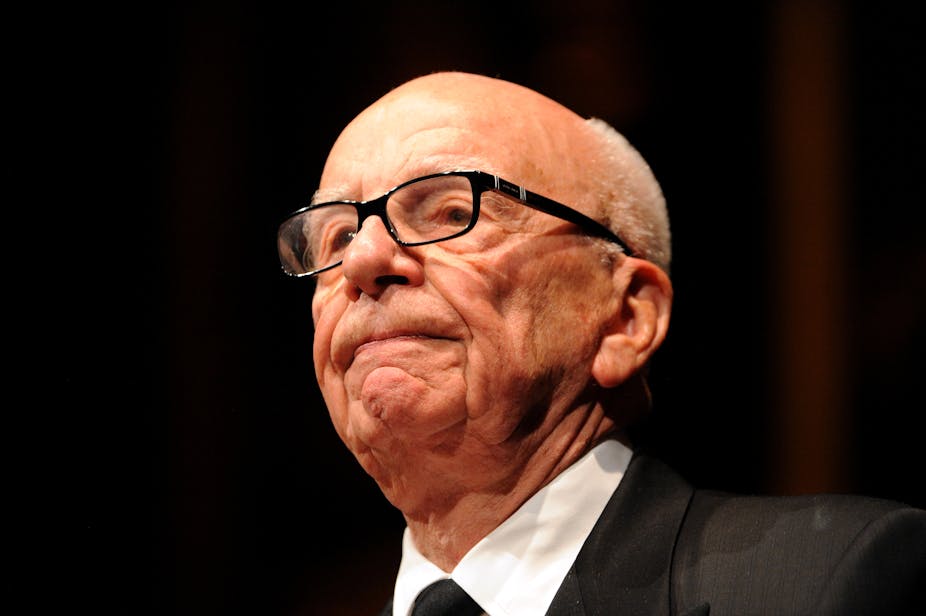Having created an empire on which the sun never sets, it must have been a heavy blow to Rupert Murdoch when his company, 21st Century Fox, announced last week it had sold its 47% stake in Star China TV to its joint venture partner, China Media Capital. There is little doubt the decision came from the top.
This investment had represented a tenuous toehold in China, involving a part share in three television stations, but Murdoch has always played the long game, starting small and then gobbling up assets until his interests dominate a particular market. And there is no bigger market than China. Having embarked on a strategy to create a global satellite television network, Murdoch coveted the Chinese market, with its 380 million households.
China is not an easy market to penetrate and Murdoch has had to work hard to get as far as he has.
There have, however, been missteps. He enraged the Chinese government with a speech he made in London in September 1993, in which he claimed that new telecommunication technologies, “have proved an unambiguous threat to totalitarian regimes everywhere,” concluding that “satellite broadcasting makes it possible for information-hungry residents of many closed societies to bypass state-controlled television channels.” Such views were not welcome in the upper echelons of the Communist Party and Prime Minister Li Peng reacted by immediately banning satellite dishes from China.
Playing the game
It is unusual for Murdoch to show such political naiveté, and after that he worked overtime kowtowing. He removed the BBC from Star TV to avoid offending the government with uncensored news about China. On Murdoch’s instruction, his publishing company, HarperCollins withdrew its offer to publish a book by Chris Patten, the last British governor of Hong Kong. The publisher did, however, find a place on its list for a tedious biography of Deng Xiaoping written by his daughter, and paid her a handsome advance. And his Fox and Sky agreed to broadcast the deadly dull Chinese government channel, CCTV 9, on its networks.
Now much wiser, Murdoch gave another speech in 1997 in which he said “China is a distinctive market with distinctive social and moral values that Western companies must learn to abide by”. He then made sure every relevant Chinese government official received a copy of the speech.
Each of these actions follows a pattern Murdoch has established elsewhere in his business empire. Murdoch has an unrivalled talent for cultivating politicians who can help him expand his business interests.
In Australia, for example, after throwing his support behind Bob Hawke in the 1983 election, he found himself on the winning side of the Labor government’s media reforms, allowing him to become prince of print and dominate Australia’s newspaper industry.
The business of regime change
But woe betides any government that gains his displeasure. This happened in 2011, when the Gillard government handed over the licence for Australia Network, the nation’s overseas radio and television service, to the ABC. The losing bidder was Sky TV, in which Murdoch was indirectly a part owner. Soon after, Gillard set up the 2011 Finkelstein inquiry into media regulation, which further infuriated Murdoch.
These were not the only sins that offended the sensibilities of the media mogul, and his newspapers turned on the Labor government in a vindictive campaign that sometimes bordered on the hysterical.
As the 2013 election approached, the Murdoch press was intent on regime change.
The discipline of News Corp paper editors during the Australian election would not have given the Chinese government any comfort. The newspapers marched to the same drum beat, intent on pushing a strong political line of their own. Already insecure, the Communist Party would not want to face such an independent source of power.
While Chinese officials seldom comment on the internal affairs of other countries, its official newspaper, the People’s Daily Online, gave a hint of how press freedom is viewed in the upper echelons of the Communist Party. Referring to the hacking scandal in the UK, People’s Daily desk editor Wang Fang wrote: “Too much freedom of the press has dragged Western democratic countries into a vicious circle of "the media shaping public opinion, public opinion pressuring politicians, and politicians colluding with the media”.
I would be surprised if they had not asked the question: how long would Murdoch remain a loyal supplicant? Looking at his record, they would have seen that his loyalties are rather fickle.
Writing in Rupert’s Adventures in China, Bruce Dover, who was Murdoch’s man on the ground in China, concludes that: “After a decade and a half of trying, Rupert Murdoch’s attempted seduction of China has ended in a case of unrequited love.” For the Chinese, Murdoch came with too much baggage, and it’s likely they saw no future in the relationship.

